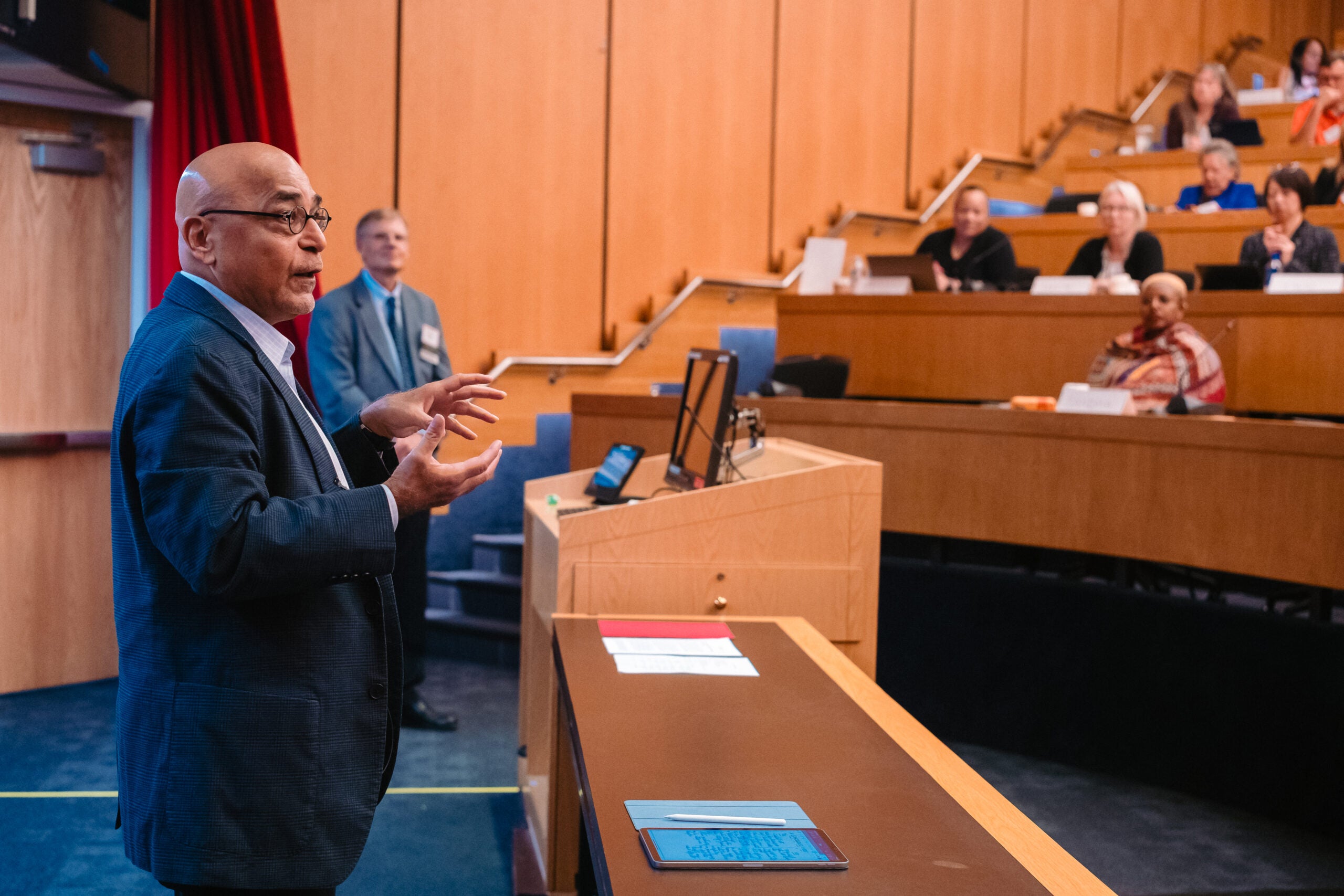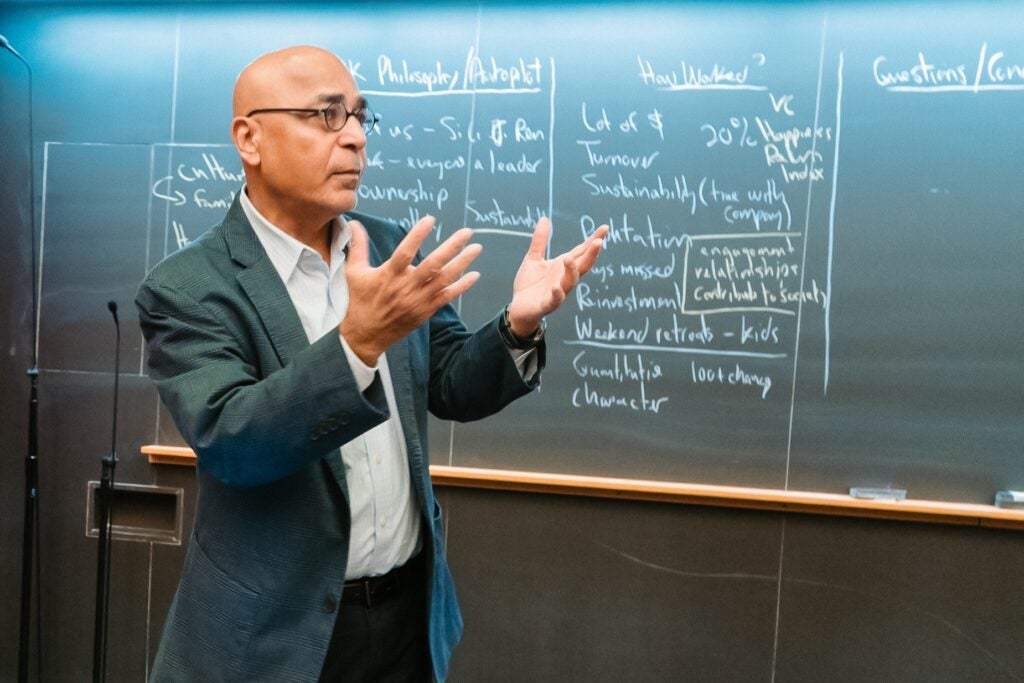Happiness and Well-being in the Workplace: The Management Philosophy of the Lee Kum Kee Group

A new case study by Center Director Dr. K. “Vish” Viswanath examines the organizational philosophy of the Lee Kum Kee Group, a sixth-generation family-owned global enterprise based in the Hong Kong Special Administrative Region of China that operates in the Asian sauce and health products sectors. The case, introduced at the Harvard Chan School’s Alumni Symposium on September 27th, 2025, by Dr. Viswanath and Richard Siegrist, Senior Lecturer on Health Care Management, explores Lee Kum Kee’s focus on happiness and health via their guiding principle of “Si Li Ji Ren” — considering others’ interests before acting. Driven by a keen interest in the role of the workplace as an important setting for promoting positive health based on decades of rigorous research, Dr. Viswanath delves into the company’s practical application of Si Li Ji Ren through mission-driven initiatives, internal policies and programs, and external initiatives with vendors and clients.

Lee Kum Kee conducts regular assessment of employee well-being through a “Happiness Index,” policies intended to encourage work-life balance, and leadership approaches such as the company’s “Autopilot Leadership Model®.” The company also promotes what it refers to as “Tri-Balance”—encouraging employees to consider their health, family, and work—as part of its organizational culture. According to company accounts, these practices were developed in response to previous business challenges and are intended to support both employee well-being and Lee Kum Kee’s performance.
Beyond internal operations, the case describes Lee Kum Kee’s external initiatives, such as the Global Youth Culinary Immersion and Hope as Chef programs, which provide educational opportunities for underprivileged youth, and its venture arm, Happiness Capital, which incorporates data-driven methods to evaluate investments based on measures of “happiness return.”
The case also critically considers whether Lee Kum Kee’s philosophy—so deeply rooted in Eastern, collectivist values—can take hold in Western, individualist contexts, inviting readers to consider how health, happiness, and profit might be reconciled, especially where individual achievement is prioritized. Dr. Viswanath’s research underscores the importance of cultural context, while encouraging further exploration around the role of the workplace for promoting collective health and well-being.
The case study and accompanying teaching guide are available for purchase on the Harvard Business Impact website here.

